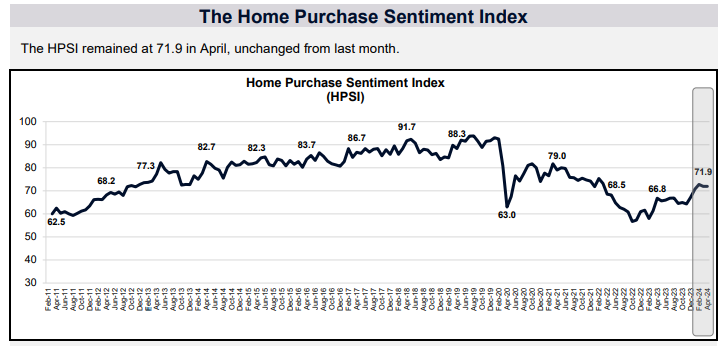Advertisement
NAMB/SOUTHEAST begins in New Orleans
Opinions from the commercial sideAnthony M. Gramzaobstacles, commercial transaction, pipe dreams
Are you always getting the real facts about the current state of
affairs in the lending arena, whether it is on a local or national
level? You may think you always are, until you are ready to submit
that commercial transaction and find out differently. Isn't it
ironic that when we get to the point of formal presentation, the
obstacles pop-up from clients as well as lenders.
I didn't think I needed all that liquidity for the closing!
Well, I thought I owned the land! How much participation is the
hedge fund requesting? But they are providing me with 95 percent
financing! Who said I have to personally guarantee? What's this?
Your doors are closed for the next 60 days? When did your policy
change to a maximum 70 percent loan to value? When did you decide
to no longer work in the construction loan business? That type of
commercial is no longer of interest to our committee! Our
requirements for loan size have increased to $10 million.
Here we are, six months into the new year, and as we view the
markets today, the concerns of four months ago are becoming
greater. From my vantage point, I know for a fact that clients, as
well as lenders, are currently suffering from what I refer to as
"procrastination fever!" It must be the economy. Would the fact
that we are witnessing thousands of foreclosures and late mortgage
payments? Would it be that the lenders are concerned with increases
in this current problem? Would it be that the next wave of
delinquencies will be in the credit card marketplace? Would it have
to do with the $5 per gallon of gasoline charges? Guess what, it's
all of the above.
Over the past few months, letters of intent that were placed on
the table for clients to consider were left to fade away. Whether
clients thought that there were better offerings in the marketplace
or whether they decided that they could not meet the liquidity
requirements of the lender, transactions were, and are not being
made. Could the client's decision be made based on the current
economic conditions? Were they uncertain as to the future business
in the marketplace? Have the sub-prime fiasco and the Wall Street
blunders put the fear of God in their decision-making process? The
answer is yes, to all the above questions.
At the beginning of this year, the main players in the real
estate financing game were the hedge funds. Commitments for a joint
venture were being offered with little or no equity on the part of
the investors, as long as the client was willing to give up 40 to
70 percent of the transaction. Many of the commitments were total
equity injections, with no debt financing. Some were on a 30
percent equity injection and 70 percent debt, under very favorable
conditions. And guess what, many of the clients rejected the offers
because, in their minds, the "sugar plum fairy" was flowing in
their head, with thoughts that they could get better elsewhere.
From our vantage point, greed stepped in.
Our regular institutional lenders have pulled way back, and in
some cases, have reduced their work force by as much as 75 percent.
Many are saying: "We are not in the market at this time." or "We
have tightened up our due diligence process." or claiming the
project or client "just doesnt qualify." We are getting back to the
days of the late '80s and early '90s when liquidity was king and
lending policies were at reasonable levels. If you are currently
involved or plan to be involved with commercial loan brokering, let
me add some advice.
"First of all, do your homework. See if the project qualifies.
Know your lenders policies. Dont try to pawn a bad deal to another
broker in hopes that they will be the miracle worker.
"On a major project, encourage the obtaining of a
feasibility/viability study. Does the project make sense? Can it be
justified? Can the area support it? Will it generate enough income
to cover expenses, as well as debt service, with a cushion left
over for possible vacancies?
"Does your client have pipe dreams? Are they planning to do this
on a shoe string?
"Are you being asked to be the miracle worker, the saint of lost
causes or the guru from the far East?
"Be realistic. Know when to say, No. Dont let a potential, and I
mean potential, retainer or commission cloud your decision-making
process.
In the Dec. 31, 2007 Wall Street Journal article, indications were
that the hedge funds would thrive; they would get bigger, but
returns to investors would be lower. However, the June 8, 2008 Wall
Street Journal, Section C article by Jenny Strasburg, "Hedge Funds
Brace for Wave of Bailouts," provided us with another side of the
industry.
Her comments state that the hedge funds are at the mercy of the
antsy investors, and a wave of withdrawals was expected by the end
of June 2008. In the past two months, hedge funds have revised
their lending policiesnow a minimum of 10 percent injection on the
part of the client is required, and in some cases, even more. In
addition to higher equity participation, the hedge funds are being
much more selective. Because of all the transactions out in the
marketplace, both domestic as well as international, the hedge
funds can rightly pick and choose. The word on the street is that
the biggest risk in the market today is the lack of liquidity.
But enough of all the gloomy news that most of us already know
about. Many of my readers know, I come from an 18-year background
in banking and have been a commercial real estate broker and
Mortgage Broker for the past 16 years. I have been a contributing
author of many articles for The Mortgage Press, and over this
period of time, I have seen all of the up's and down's, and have
suffered through the bad times and benefited from the good times.
My ending comments for your consideration are:
"Think positively, and be realistic in your real estate
decisions.
"Real estate is still, and will continue to be a good investment.
Inflation will actually help, as it has helped in the past.
"Many lenders have failed or will fail, as they have had to in the
past. Dont be discouraged. The marketplace will correct itself, and
consolidation is not bad.
"Potential projects are great, but in todays market and in the
foreseeable future, if you do not have liquidity, stay out of the
game.
"Partnerships are not for every investor, but if your client
decides to go that route, they need to be willing to give up a good
size of the pie. Dont let greed block your venture.
"Justify your project. The guessing game in todays market will not
fly. Feasibility/viability studies will be required in justifying
your decision to move forward with a lender.
"And lastly, have patience, for it is a virtue that we all need.
The lending process will take longer, and lenders will be much more
scrutinizing. Be prepared, and accept the modus operandi of todays
marketplace.
Anthony M. Gramza is president of Rochester, N.Y.-based AMG
Commercial Mortgage Group Inc. and has been in the mortgage banking
industry since 1961. He may be reached at (858) 766-9540 or e-mail
[email protected].
About the author





